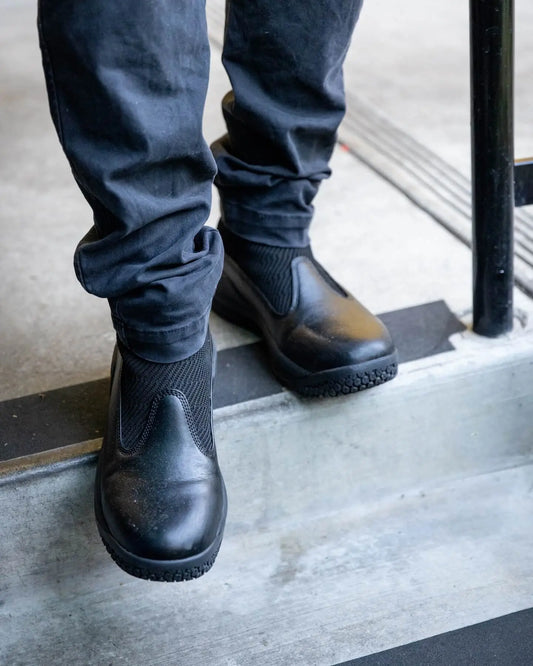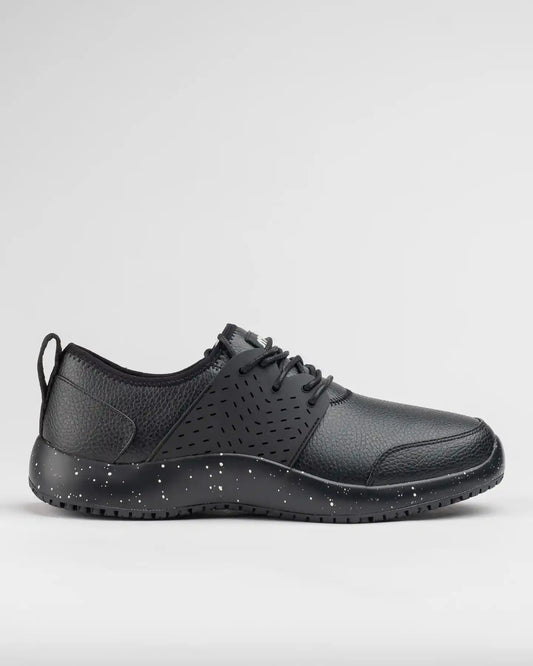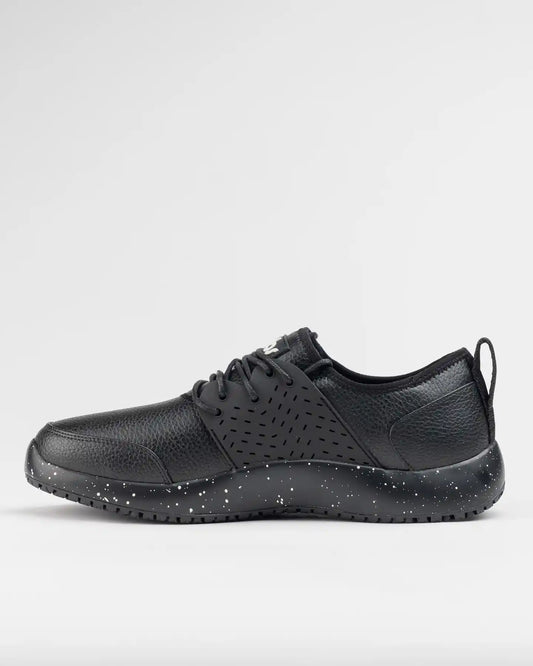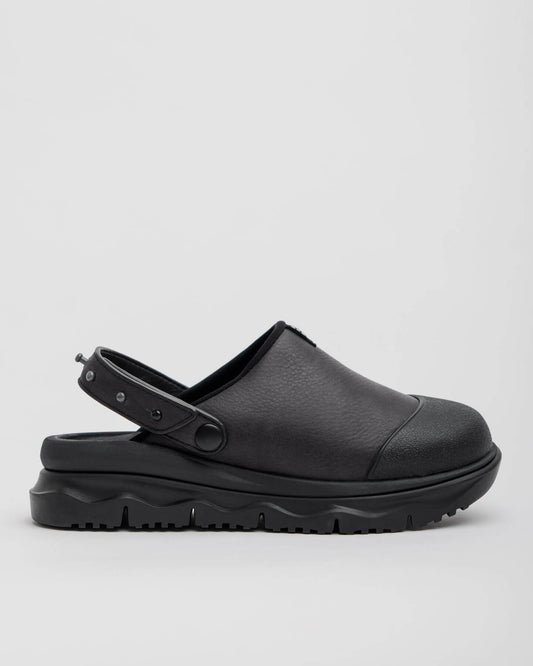What Is Nurse Burnout? Causes, Effects, and How to Overcome It
Klaudia Habek
Nurse burnout is an all-too-common phenomenon in the healthcare industry. This affects every type of nurse, from recently graduated nurses to seasoned professionals.
But what is nurse burnout, and what causes it?
Burnout is a condition in which nurses feel physically, mentally, and emotionally exhausted at their jobs. Nurses can experience burnout when working long hours, increased pressure, and insufficient resources. This then causes nurses to feel It can have serious implications for patient care, leading to decreased morale, diminished quality of care, and even job loss. Luckily, there are steps nurses can take to reduce the chances of experiencing burnout symptoms and restore their well-being.
Causes of Nurse Burnout
Nurse burnout is a real issue for nurses that often causes both physical and psychological exhaustion. As a result, nurses may experience negative impacts on their overall job performance, such as compassion fatigue and unproductive shifts. In turn, this could have negative impacts on patient safety. Burnout usually stems from a combination of work-related elements and personal factors.1
Job-Related Factors
The nursing profession is demanding, making job-related factors one of the primary reasons nurses experience burnout. Some of these factors include:
- High workloads: Nurses manage a large number of patients, tasks, and paperwork with limited resources and staffing. This can lead to feeling frustrated and overwhelmed, which can lead to burnout.
- Long hours: Nurses often find themselves working long shifts, even overnight or double shifts, which may contribute to feeling overworked and tired.
- Lack of support: At times, nurses may feel isolated, due to the lack of support from colleagues, supervisors, or even the administration of their healthcare facility.
- Emotional stress: Caring for patients in high-stress situations and handling difficult situations, such as death or trauma, can take an emotional toll on nurses.
- Physical exhaustion or injury: Nursing is a physically demanding profession, with nurses having to stand for long periods of time, lift patients, and move heavy equipment. This can lead to physical exhaustion and even injury over time.
Personal Factors
Due to their demanding jobs, many nurses may overlook important personal factors that affect their level of burnout. Personal factors to look out for include:
- Poor work-life balance: Working as a nurse can be draining, with long hours and stress leading to a poor work-life balance. This can create feelings of exhaustion that, if not addressed, can cause burnout.
- Lack of self-care: It’s important for nurses to take care of themselves physically and emotionally, but many don’t take the necessary time for rest or relaxation.
- Personal stress: Nurses can suffer from burnout outside of their job too, especially if they are facing challenges in their personal life, like family or financial struggles.
The Effects of Nurse Burnout
Nurse burnout is a serious issue that can have long-lasting effects, both in and out of the workplace. Recognizing the potential effects of nurse burnout can help nursing professionals take action to prevent it. Common effects of nurse burnout include:2
- Physical and emotional exhaustion
- Decreased job satisfaction
- Loss of empathy for patients or compassion fatigue
- Depersonalization of work
- Reduced performance
- Anxiety and depression
- Employee turnover
In order to promote a productive and healthy working environment, both nurses and organizations need to be aware of the repercussions of nurse burnout and take steps to avoid it.
How to Overcome Nurse Burnout
Nursing burnout is an issue that affects the health and well-being of nurses across all specialties, so it’s important to know how to prevent it.3
1. Take Care of Yourself
One of the most important things you can do to prevent nurse burnout is to take care of yourself. Important components of practicing self-care for nurses include getting enough sleep, eating well, exercising, and making time for yourself. It’s also important to make sure you’re wearing the proper work shoes for nurses to stay comfortable on the job and take regular breaks throughout the day to rest and recharge.
2. Create a Support Network
Connecting with other nurses and healthcare professionals can help create a sense of camaraderie and support. Having someone to talk to who understands the unique challenges of nursing can help you stay motivated and give you the emotional support you need for your mental health.
3. Prioritize and Delegate Tasks
When dealing with a heavy workload, it’s important to prioritize and delegate tasks when possible. This is a helpful component of stress management for nurses that will ensure the most important tasks are getting done first, taking some things off your plate.
4. Focus on Positive Experiences
Even in difficult work environments, it’s important to focus on positive experiences to support your mental health. Think about the successes you have had and the moments when you were able to make a difference in a patient’s life. This can help remind you why you chose nursing in the first place and motivate you to keep going.
5. Set Boundaries
Finally, it’s important to set boundaries and stick to them. You need to make sure that your workload is manageable and that you’re not taking on more than you can handle. It’s also important to set boundaries with patients and colleagues so you can maintain a healthy balance between work and home life.
Incorporating these strategies into your routine can help minimize the danger of burnout while continuing to do the gratifying work of a nurse.
Conquer Nurse Burnout With Snibbs
As a nurse, being able to care for your physical, mental, and emotional well-being is essential if you want to prevent nursing burnout. This is where Snibbs comes in.
When it comes to your physical health, start with your feet. As a nurse, you are constantly on your feet and helping others. So, if you understand the importance of comfortable work shoes, slip-resistant footwear should be top of mind. That's why Snibbs has designed work shoes for nurses that feature slip-resistant properties, arch support, adjustable features, and ultra-comfortable insoles, all to help reduce foot and body pain.
To the nursing professionals providing valuable and compassionate service to their communities - thank you! Make sure to give yourself the same level of care you provide others.
Sources:
- Dr Paul’s By The Sea. Nurse Burnout: Causes, Symptoms, and Prevention. https://drpaulbythesea.com/nurse-burnout/
- NIH. Nurses’ Burnout. https://www.ncbi.nlm.nih.gov/pmc/articles/PMC5798741/
- NurseJournal. Top Tips From Nurses Preventing Burnout. https://nursejournal.org/resources/tips-for-avoiding-nurse-burnout/














